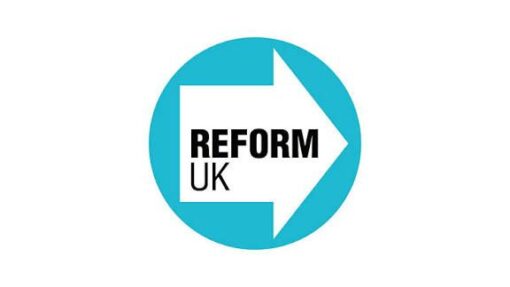Reform UK has made headlines again with its latest immigration proposal — the abolition of indefinite leave to remain (ILR) and the introduction of rolling five-year work visas.
Party leader Nigel Farage has presented this plan as a necessary step to tackle what he calls the “post-Brexit immigration surge” that took place under Boris Johnson’s government.
If implemented, the policy would represent one of the most dramatic overhauls of the UK migration system in decades. However, behind the glossy brochure and sound bites, questions remain about costs, legality, and fairness.
To understand the scale of this proposal, it’s worth revisiting what indefinite leave to remain actually is.
Why ILR matters for migrants and families
ILR allows migrants to settle permanently in the UK after meeting eligibility requirements, usually involving continuous residence for five years, proof of English language proficiency, and good character checks. Holders of ILR have the right to live, work, and access most public services without restrictions. For many, ILR is the final step before applying for British citizenship.

Reform UK’s plan would strip away that settled status entirely. Instead of permanence, people would have to reapply every five years for a renewable visa — subject to higher salary thresholds, tougher language tests, and stricter conditions on bringing dependents.
Crucially, the policy is not just forward-looking: it would apply retroactively to those who already hold ILR.
A Retrospective Shock
How Reform UK wants to apply rules backwards
The retrospective element is one of the most controversial aspects. Those who have lived in the UK for years — working, raising families, paying taxes, and building lives around the security of ILR — would suddenly find their status in jeopardy.
Under Reform UK’s proposal, they could be forced to prove their eligibility again or risk deportation.
Farage has argued that EU citizens granted settled status after Brexit would be exempt, but beyond that, the details remain vague.

What happens to those who fail to meet higher income thresholds? What about families where one partner earns below the required level? These questions remain unanswered, and critics say the proposal risks creating widespread fear and instability among legally settled communities.
The £230 Billion Question
Much of the publicity surrounding the proposal has centred on a headline figure: £230 billion.
Reform UK claims this is the anticipated cost of the 800,000 people expected to qualify for indefinite leave to remain in the next three to four years. Farage argues this staggering number justifies the overhaul.
Disputed figures and their political use
However, the figure is highly disputed. It originates from a report by the Centre for Policy Studies (CPS), which has since withdrawn the calculation, admitting the assumptions behind it were flawed.
Even the think tank that produced the estimate no longer stands by it. This leaves Reform UK’s financial justification on shaky ground, raising doubts about whether the policy is based on robust evidence or political theatre.
Potential Impact on Key Sectors
Hospitality, social care, and NHS challenges
Beyond the politics, the practical consequences could be severe. Many industries rely heavily on migrant labour, particularly sectors such as hospitality, health and social care, and construction.
If long-standing workers with indefinite leave to remain were suddenly forced out or deterred from renewing visas, employers could face acute shortages.
Hospitals and care homes already under strain might struggle further, while restaurants and hotels could be hit by sudden gaps in staffing.
Business groups have consistently warned against abrupt changes that undermine workforce stability. Introducing rolling work visas in place of ILR risks adding bureaucracy and insecurity, both for workers and for employers who depend on them.

The Fair Play Debate
British values and broken promises
One of the enduring British values is the idea of fair play. People who arrive in the UK legally, follow the rules, pay taxes, and contribute to society typically expect stability and respect for their rights.
Reform UK’s proposal challenges that principle by applying new rules retroactively.
For many, the prospect of being told that years of lawful residence no longer secure permanent status will feel like a breach of trust.
Critics argue it undermines the integrity of the UK’s immigration system and could tarnish the country’s global reputation as a fair and rules-based society.
Legal and Diplomatic Hurdles
Human rights and international obligations
There are also legal questions. Retrospectively stripping indefinite leave to remain from migrants could face challenges under human rights law, particularly concerning the right to private and family life. Courts may view retroactive deportations as disproportionate or unlawful.
Diplomatically, tensions could arise with countries whose nationals are affected, especially if people who believed they had permanent rights are suddenly forced to leave.
With the EU Settlement Scheme already a delicate compromise, carving out exemptions for EU citizens while applying stricter rules to others may invite charges of discrimination.
Political Strategy or Practical Policy?
Reform UK’s positioning in the immigration debate
Some analysts suggest the proposal is less about practical policy and more about political strategy. Reform UK has built its platform on a promise to “take back control” of Britain’s borders, appealing to voters frustrated with both Conservative and Labour approaches.
By targeting indefinite leave to remain, the party signals toughness on immigration while setting itself apart from mainstream parties.
But governing is different from campaigning. Turning this radical idea into workable law would require complex legislation, mass administrative capacity, and the willingness to weather legal and diplomatic storms. Whether Reform UK could deliver is highly questionable.
Conclusion: High Risks, Uncertain Rewards
Reform UK’s plan to abolish indefinite leave to remain and replace it with rolling work visas is bold, headline-grabbing, and politically potent.
Yet beneath the surface, it raises more questions than answers. The disputed £230 billion figure undermines its fiscal justification, while the retrospective nature of the proposal challenges principles of fairness and legality.
The likely consequences for industries, communities, and Britain’s reputation are immense. While some voters may see it as a necessary corrective to high immigration, others will view it as an attack on people who played by the rules.
In the end, the proposal highlights the tension at the heart of UK politics: how to balance control of borders with fairness, stability, and economic reality.
Reform UK’s approach to indefinite leave to remain suggests it is willing to test that balance to breaking point.
More news at Swiftreportnow


